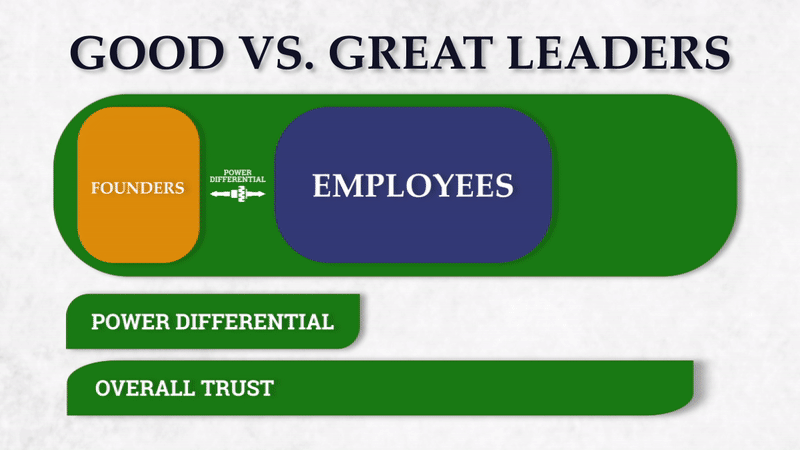Why would somebody follow you?
While most CEOs learn to lead by studying others, a far more powerful method begins with determining your answer to this question.
This isn’t just about EQ. This is how you build a startup that wins.
Hundreds of abnormally successful tech CEOs – like my partner Pete Flint (Trulia) and Reid Hoffman (LinkedIn) — have something in common: they all took “Touchy Feely”, the nickname of Stanford GSB’s most popular class on interpersonal dynamics, led by Professor Carole Robin.
Now Carole is making some of the most important lessons from Touchy Feely available in her new book Connect that we are breaking down here.
The methodologies GSB students gain, from “the 15% rule” to “decreasing power differentials”, are one of the great, unseen advantages for Founders in their companies and in life.
“Why Would Somebody Follow Me?”
- Most of the time people learn about leadership in academic settings and in workshops and through programs by studying what other leaders have done that worked or didn’t work. That’s a perfectly fine way to learn about leadership.
- I happen to think that a more powerful way to learn is for each leader to sit in that question: Why would somebody follow me?
- I hope leaders develop a better understanding of these two antennae:
-
- The first is being very tuned to what’s going on for me inside of me.
- The other one is being attuned to the signals coming from you — and having them work together towards something productive.
- Leaders who work on fine-tuning those antennae and learn to have them talk to each other, no easy feat, become what we call referent figures: people that others want to be more like, people that others admire, people that others are influenced by.
- And by the way, what would make me a referent figure and why people would follow me might be very different than why people would follow you.
- But at the core, we have to be willing to allow ourselves to be known.
- Bringing that facade down and being more interconnected and being more connected allows you to think differently.
- We have to create environments where:
-
- Other people feel safe that they can be more known.
- We can learn how to have conflict that’s productive.
- And we have to be invested in each other’s success.
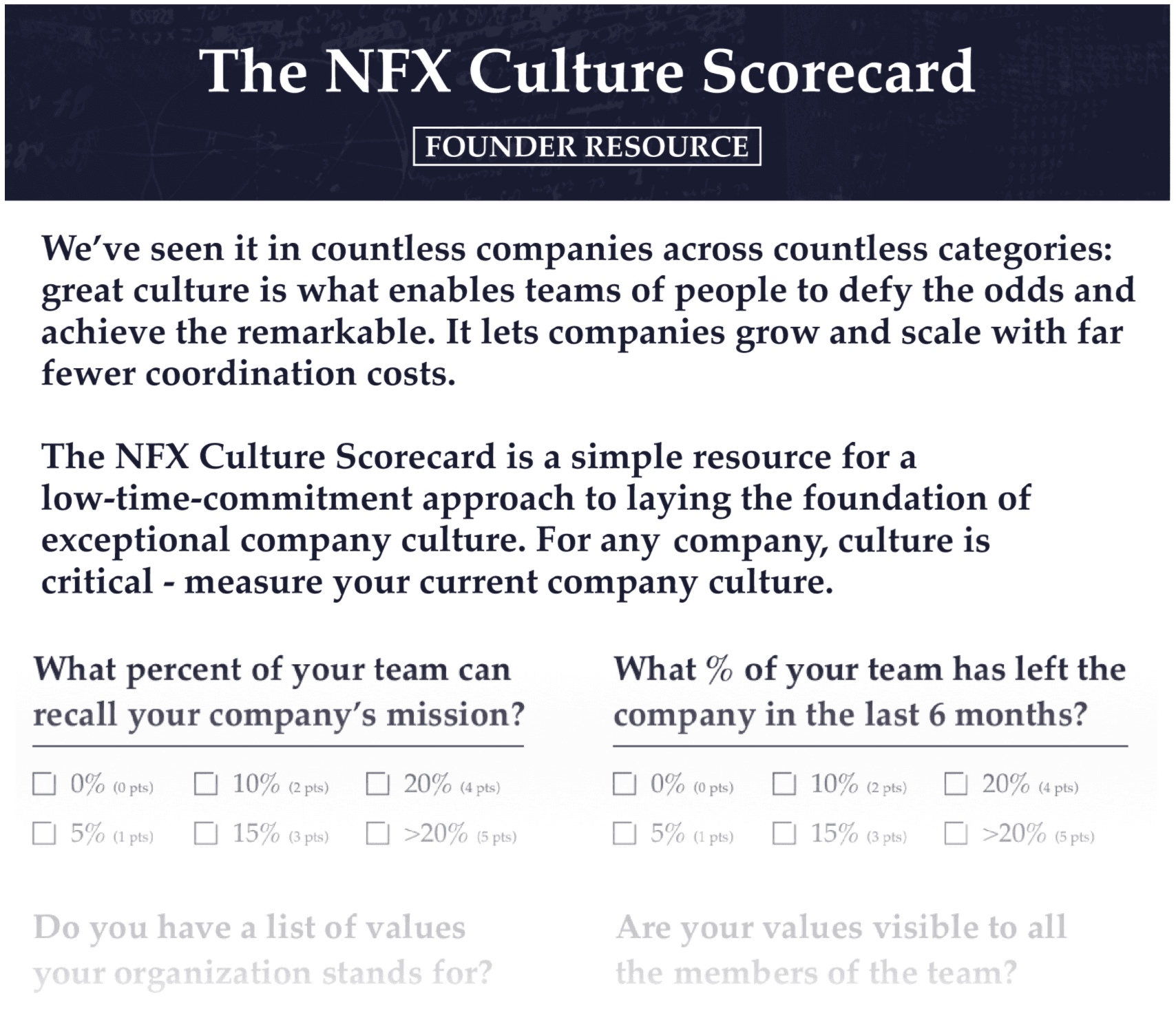

The 15% Rule: The Zone of Safety, Danger, and Learning
- The closer I hold my cards to my vest, the closer you’re going to hold yours to yours. And no relationship is going to get deepened in that.
- I’m not advocating to tell everybody everything. We have a heuristic that I think is particularly useful. We call it the 15% rule. Think of it as three concentric circles.
- The circle on the left is the zone of safety, which is where you don’t think twice about what you’re saying.
- The circle on the outside is called your zone of danger where you can’t imagine saying that to somebody.
- The zone in the middle is called the zone of learning. And by the way, that’s the only way we learn is to step outside of our comfort zone.
- I used to tell my students, no risk, no reward. My students used to say, “But Carole, the minute I’m outside of my safety zone, I’m terrified that I’ve gone past the learning zone and into the zone of danger.” So then we would say, “Why don’t you try 15% outside of your comfort zone? Just a little bit. You’ll know if you’ve said something that makes you a little uncomfortable.
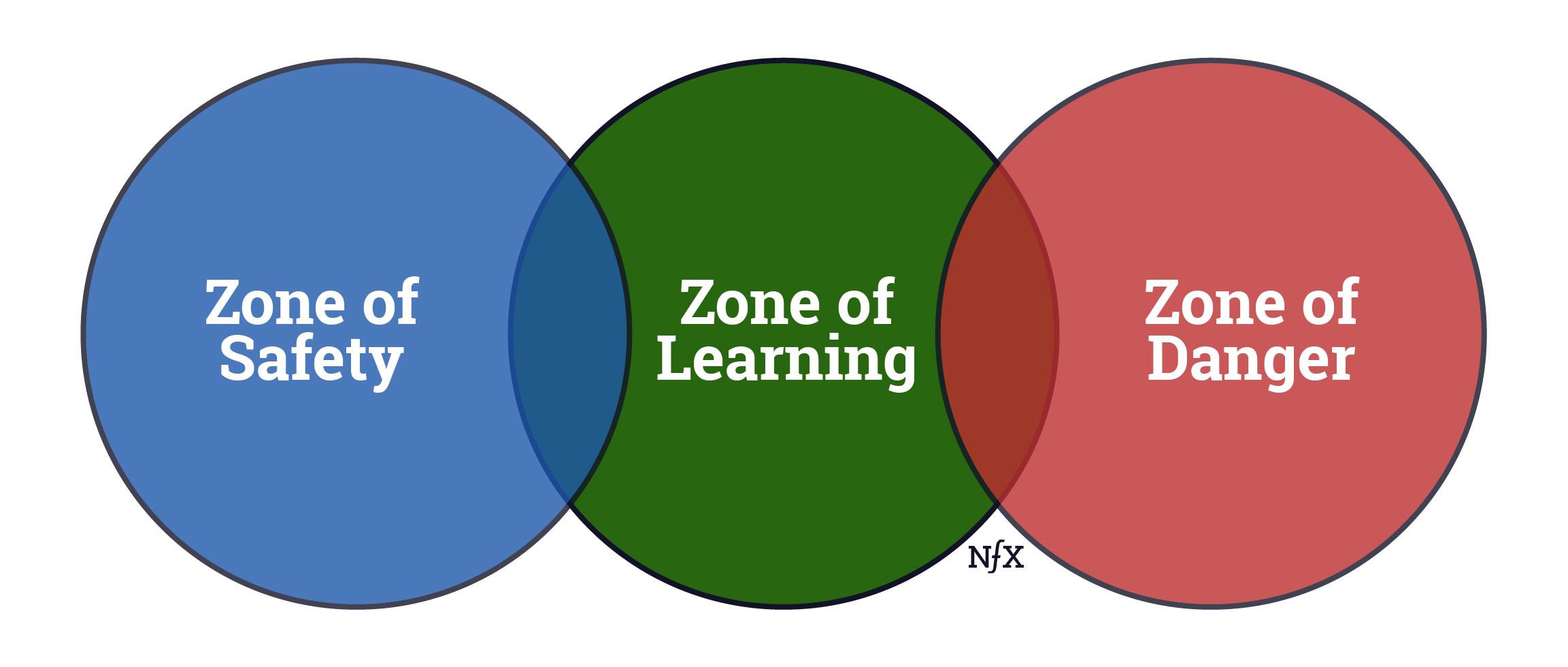

No One Is Always “Crushing It”
- We have this mental model that the CEO or the Founders need to carry everything. They need to control the information of the board, control the information of the employees, control the information of the customers, and they’re the only ones who can know the weaknesses.


- They think they need to have all the answers, always be on top of it, always be optimistic. This doesn’t just exhaust them, it disempowers their people.
- If you don’t ever ask somebody to help you, then after a while they don’t think they’ve got much to bring to the party.
- Everybody knows nobody is telling the truth. That’s why I’m saying the concept of appropriate authenticity might be worth talking about for a moment.
- If I’m the VP of marketing and that’s a third quarter in a row that our market share has dropped drastically, and I have no idea what’s going on, I don’t stand in front of all the troops and say, “Well, I have no idea what’s going on. I’m not sure I should be your VP of marketing.” That’s authentic and that’s vulnerable, but that’s not very effective.
- The flip side, by the way, is everybody knows market share has dropped for the last three months in a row. For me to get up there and say, “Hey, everybody, it’s okay, no big deal.” That’s also not very effective.
- You can say, “Hey, you know what? This is the third month in a row we’ve dropped market share. It really sucks. There are a lot of potential reasons. I don’t have it all figured out, but I’m pretty sure that together we will figure it out.” That doesn’t sound weak.
- It sounds right on the boundary of authenticity both ways while offering a path forward, offering real leadership. If you can be authentic, it almost triggers you to be a better leader, to come up with better solutions.


- If you always say, “I’ve got this covered or I don’t admit any mistakes” it creates a bigger and bigger power differential between you and others in the organization. And as the power differential gets bigger and bigger, people stop telling you the truth.
- I can think of very few things that are more important for a leader to do than to build an environment where people tell each other the truth.
- Particularly for startups because nobody really knows what to do, you’re just making it up.
- They are less likely to tell you the truth, the bigger your power differential becomes. There’s a real mathematical structure there.
- And that ties into disclosure too because the more I disclose, the more vulnerable I make myself, the lower the power differential and the harder it is for you to make up stories about me.
- In the absence of data, people make stuff up. If you don’t want people to make stuff up, then you better tell them what you want them to know. And that’s not just about the business, it’s also about you.
- We tend to think that vulnerability, authenticity, and weakness are all somehow tied together. But I would argue that if you’re willing to be vulnerable, you’re probably pretty strong.


Crisis of Identity In Startup Founders
- It’s getting clearer to me how almost unidentifiable Founders are from their company.
- Founders’ sense of worth and identity is tied to their company. They are all one and the same.
- There are ways in which that serves them and there are ways in which that is costly.
- A lot of Founders just want to talk about what’s really going on for them and feel emotionally met.
- They don’t feel that way by their boards. They don’t feel that way by the people that work for them. They don’t have anybody in their life who they can really be real with.
- Great Founders tend to cultivate an advice network to help them make critical decisions and feel heard.
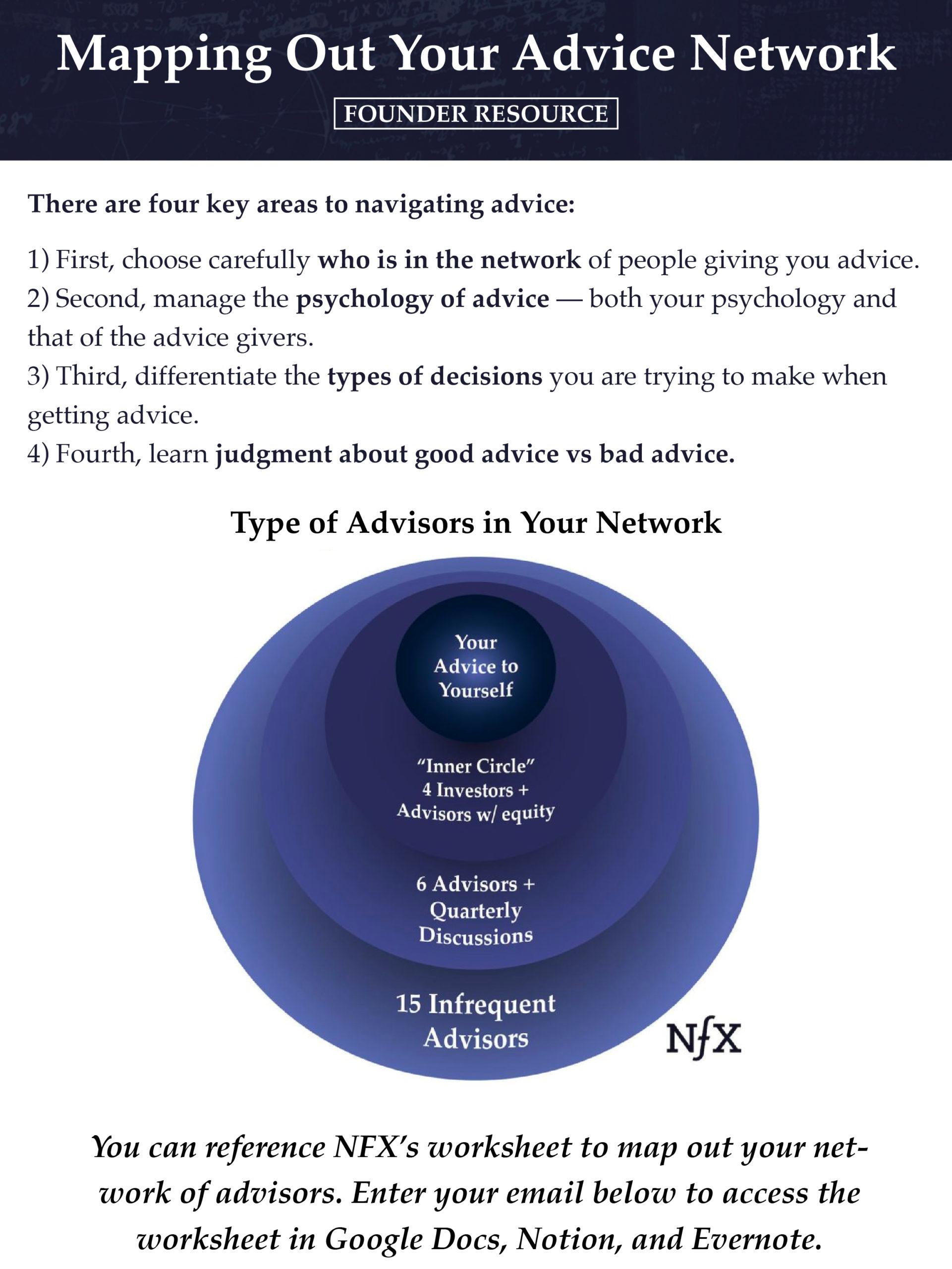

Get Curious About What’s Going On For The Other Person
- If you’re doing something that’s mildly annoying to me and I don’t say anything to you, you’ll keep doing it. And the more you do it, the more annoyed I’m going to get. And then the harder it’s going to be to talk to you about it.
- Rule number one is to establish some norms to address pinches when they’re smaller. Instead, the tendency is to say, it’s not a big deal, not a big deal, not a big deal until it becomes a big deal.
- The second thing I’d say is that task conflict varies. Should we roll out that new product line this year or next year? That’s a very different kind of conflict than I don’t ever feel heard from you. I don’t feel acknowledged by you. I don’t feel valued by you. Those kinds of conflicts are much more destructive to relationships.
- They are more destructive because they create more and more distance, and the more distanced I feel from you, the less I want to invest in problem-solving with you.
- There are certain personality types that make this type of communication more difficult. When someone fundamentally doesn’t feel good enough for some reason, then they get pretty defensive.
- Go back to the purpose of these conversations when we’re having a conflict. Move into a problem-solving conversation, which first has to start with getting curious about what’s going on for each other, being committed to getting on the other side of it, not getting stuck with who’s right and who’s wrong.
“There’s nothing more efficient than the truth.”
- One of the big things I talk to Founders about is how to create environments where people tell each other the truth, what gets in their way of telling the truth, and how to give.
- Another thing is giving and receiving feedback well. Everybody’s like, “Ah, I’ve had feedback training.” Well, most feedback training is just really basic and pretty marginal.
- It’s an art and it requires curiosity, it requires not making up stories about what’s going on for the other person so you don’t make them defensive. It requires staying the course that the purpose is to move into problem-solving. It requires making sure both of you know what your intent is.
- Instead, most people are circumspect or they’re passive-aggressive or they think, I don’t have time to give this person feedback.
- Well, you know what, there’s nothing more efficient than the truth.
- If you establish a culture where people tell each other the truth, you’re going to have a far more sustainable, successful organization. Not to mention the fact you’re actually going to grow and develop more.
How do you explain the success of Steve Jobs and Travis Kalanick?
- One of the big battles I always had when I was still at the GSB was that my students would hold up folks like Steve Jobs and Travis Kalanick and say, “Well, but how do you reconcile what you’re saying with them?”
- First of all, I think it takes somebody very different to have the right product at the right time in the right place. That requires a person with a different set of skills than a person who wants to build something that’s sustainable and that will outgrow them. And even more important that won’t become dependent on them to survive.
- So, regrettably, there are a lot of functional but nonetheless narcissistic leaders that have made it big.
- But underlying that is perhaps a principle about their willingness to take risks, that all Founders can learn from.
- Now, I would argue that a person who’s willing to take risks interpersonally, along with a person who’s willing to think outside the box and really create some of the incredibly wonderful things that are being created in the Valley are the people who are going to ultimately win.
- It depends on how we define winning. How do you define winning, for you?
How The Famous “Touchy Feely” Course Got Its Name
- It’s called Interpersonal Dynamics, but all the students call it “Touchy Feely.”
- I think the reason that thousands of alums for decades have called it the most transformational experience of their GSB (Stanford Graduate School of Business) time is precisely because they’ve learned that from a professional point of view, people do business with people.
- So until they learn how to get that part right, they’re going to be limited in their professional success.
- But beyond that, they also come back and talk about how the course saved their marriage, how it helped them reconcile with their brother who they hadn’t talked to for 10 years, how it has impacted the way in which they parent.
- Beyond what it has done for them as leaders, it’s made them fuller whole people and therefore better leaders.
- If we’re doing all this work to create in the world, that’s one thing. If we’re getting all this money, that’s another thing. But if we don’t actually have those relationships that are meaningful to us, then what’s the point of it at all.
- In the class, students discover parts of themselves that they either had kept hidden or that they thought they had to keep hidden.
- What these GSB MBAs discovered was that they had a presented image, a persona that was what they normally led with, and when they allowed themselves to be more known and seen, not only were they more compelling and appealing, and influential, but they also were freer and happier and that experience was so profound for them.
- It’s a flywheel. Like any other flywheel, the more they talked about it as alumni, the more students who came.
You can listen to the podcast conversation here. Carole also just published a new book: “Connect: Building Exceptional Relationships with Family, Friends, and Colleagues”.
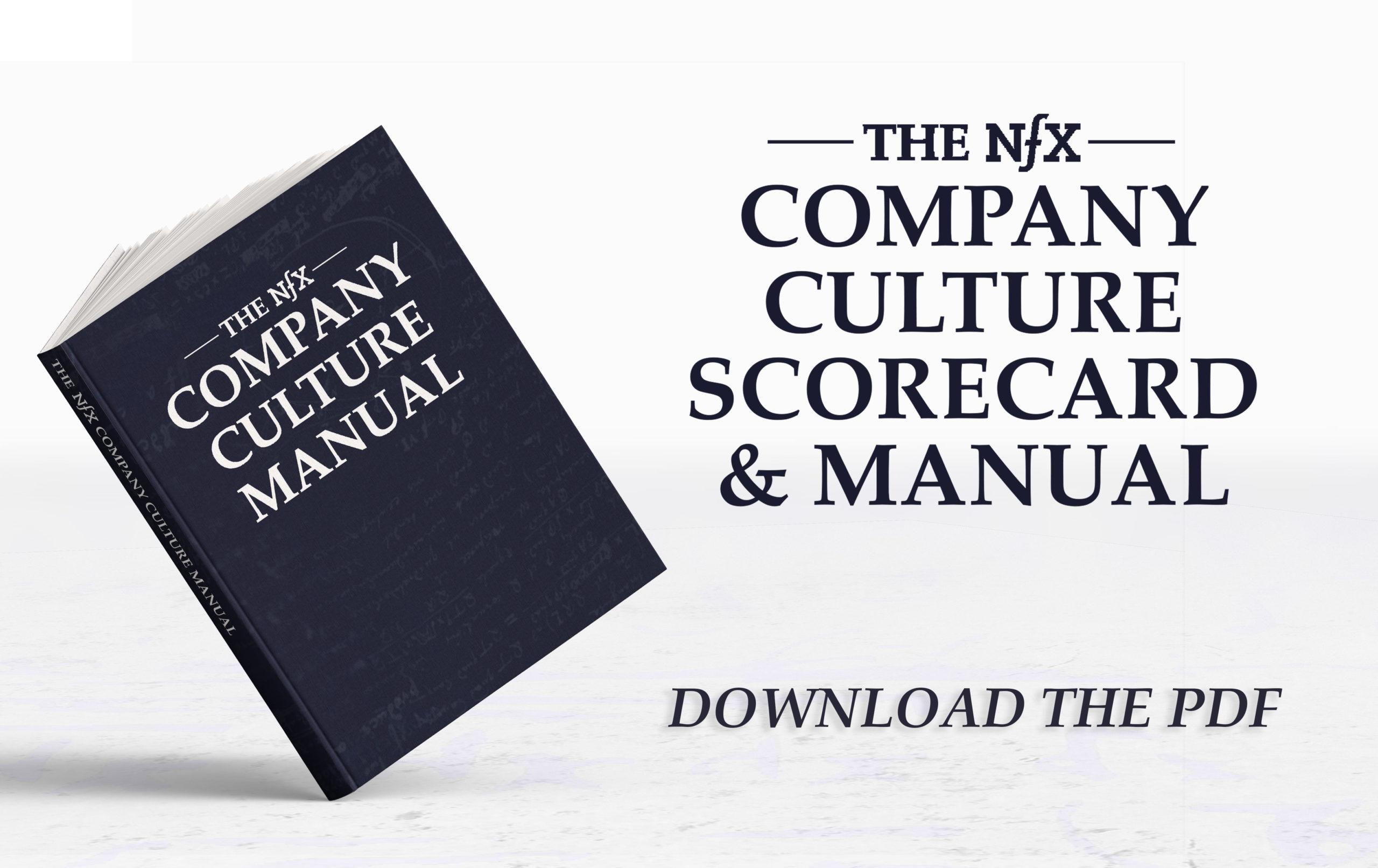

As Founders ourselves, we respect your time. That’s why we built BriefLink, a new software tool that minimizes the upfront time of getting the VC meeting. Simply tell us about your company in 9 easy questions, and you’ll hear from us if it’s a fit.
